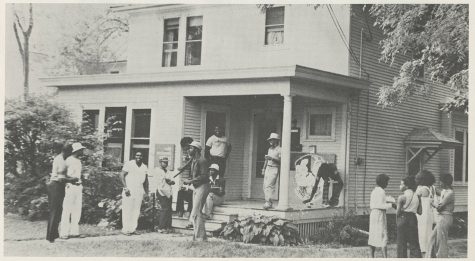Mike Naig eyes full term as Iowa secretary of agriculture
Mike Naig, the Republican incumbent and candidate for Iowa secretary of agriculture, says he is focused on water quality, trade, and workforce development.
Iowa acting Secretary of Agriculture Mike Naig sits for a portrait in The Daily Iowan newsroom on Monday, Sept. 24, 2018. Naig is running for election, after serving as Deputy Secretary of Agriculture since 2013.
October 21, 2018
Mike Naig, Iowa’s acting agriculture secretary, says he brings experience and passion gleaned from his time as deputy to his predecessor to the forefront of his election campaign.
Naig was sworn in as Iowa’s deputy secretary of agriculture in September 2013. Iowa Gov. Kim Reynolds then appointed him to succeed Bill Northey in March. Northey left the office to assume a position in the U.S. Agriculture Department.
“I hope folks can look at my track record, and the work we have done and the effort we put in, and know that’s something that we’ll do every day we are in the office,” Naig said.
In a crowded June primary, Naig didn’t quite reach the needed 35 percent of the vote to win the Republican nomination outright. Two weeks after the primary, party leaders selected him as the nominee at the Republican State Convention.
He faces Democratic challenger Tim Gannon.
Naig grew up in the town of Cylinder, Iowa, with a population of 86 people, where his family was involved in pork production. Now, he farms corn and soybeans.
“I’ve always worked off of the farm like a lot of people who grew up in the ’80s and had to do other things,” Naig said.
Along with workforce development, Naig said water quality, soil health, and trade are other issues he focuses on. A noteworthy part of his career, he said, was securing long-term funding for water quality with Senate File 512, the first bill Reynolds signed as governor.
The bill allocates $282 million to improving Iowa’s agricultural infrastructure for the next 12 years.
“We can have a nonregulatory approach to improving water quality that shows we don’t need a regulation from Washington, D.C.,” Naig said.
While the government does play a role in upholding reasonable environmental regulations, he said, he wants to be sure officials do not over-regulate farming practices, citing the Obama administration’s rule/addendum to the Clean Water Act as an example. (Both the Clean Water Act of 1972 and the Obama rule exempt agriculture.)
“We have to have a regulatory environment that allows businesses to operate and to thrive and grow,” Naig said.
Naig said that on the international level, Iowa’s secretary of agriculture plays an important role in advocating for the state’s farmers and businesses to the current presidential and state administrations in addition to trading partners.
RELATED: Ex-USDA official eyes state agriculture secretary office
He pointed out that the trade dispute with China remains a concern for Iowa’s pork and soybean producers, and those prices have significantly declined since the beginning of this summer.
“We need to get to a place where we can negotiate with the Chinese to lift those tariffs,” Naig said. “It’s not like this was a perfect relationship before. [China] had been blocking beef, they were blocking poultry imports, they had created high tariffs on ethanol, intellectual-property issues — those things were harming our farmers as well.”
Naig said that trade policy is set at the national level, but the secretary can build state markets and connect with customers from other countries.
Naig has three sons, ages 11, 10, and 4, and says they love being on the family operation.
“When I thought about why to do this, and what drives you to get up and take this on, is that I want to help create a situation where that next generation could have that opportunity to go into agriculture,” Naig said. “I feel blessed that I get a chance to raise that fifth generation of our family involved in an operation.”





















